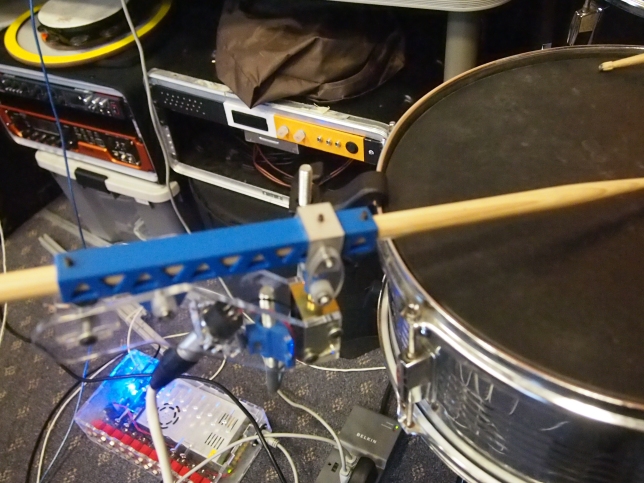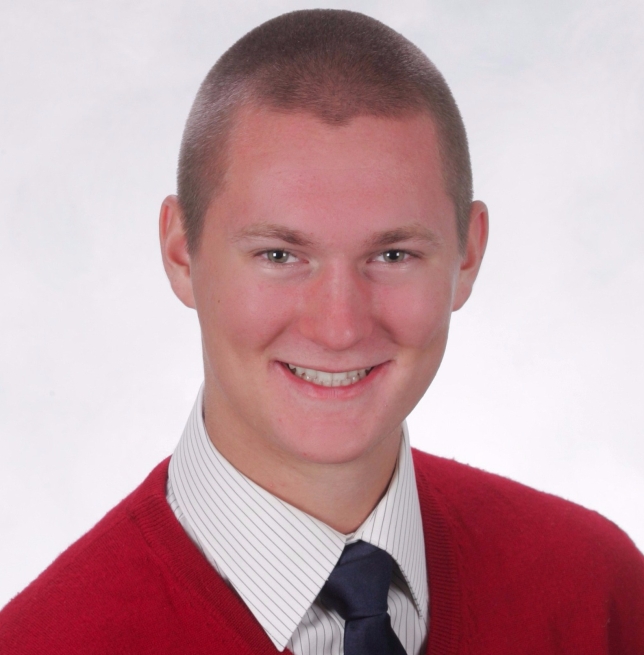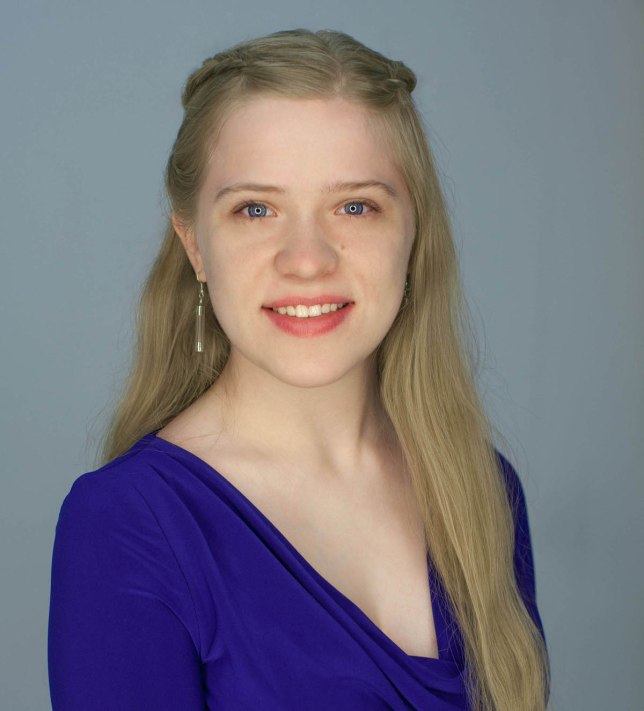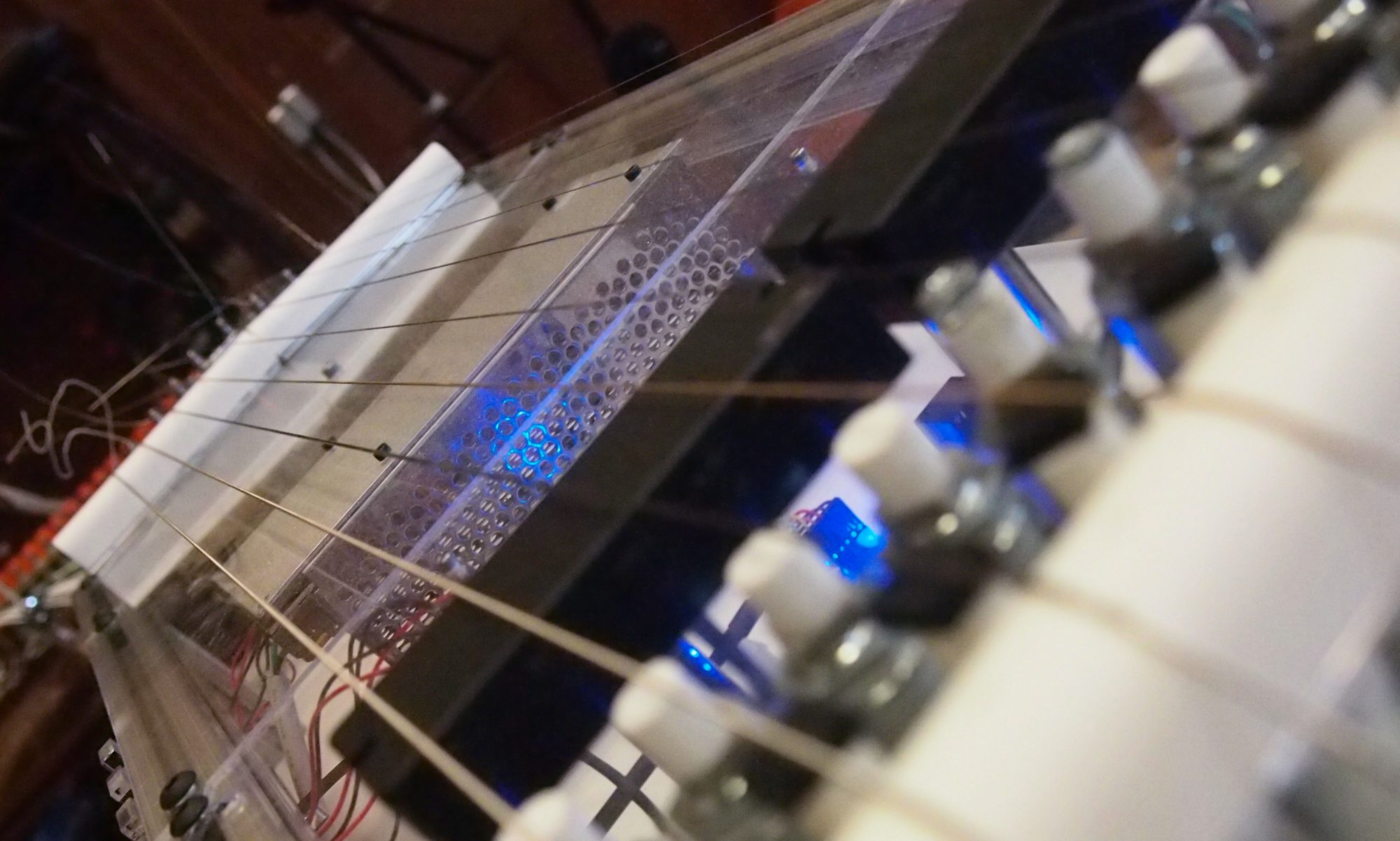The Music, Perception and Robotics Lab explores how musical creativity can be inspired and enhanced by technological tools and understanding of human auditory perception. We build robotic and mechatronic systems in order to explore expressive spaces that unique to machines, unique to humans, and are shared between the two. We conduct psychological research that examines human musical perception and creativity. We synthesize these efforts in projects where humans and machines interact in the context of art and psychological research to inspire and augment creativity and expressivity. As we embody and encode characteristics that we value, we recognize our technological and artistic experiments as fundamentally humanistic endeavors.
Robotic Instruments

Parthenope
a robotic musical siren

Whamola
a robotic bass monochord that tunes by adjusting string tension

Cyther
a human-playable robotic zither

PVC Aerophone
an automatic open-tube aerophone

Modular Percussion
automatic modular percussion instruments

Harmonium
an automated harmonium

Recorder
an automatic recorder

Glocky
an automatic glockenspiel
Publications
S. Barton (2020). Circularity in Rhythmic Representation and Composition. Proceedings of the International Conference on New Interfaces for Musical Expression, Birmingham City University, pp. 505–508.
M. Sidler, M. Bisson, J. Grotz, and S. Barton (2020). Parthenope: A Robotic Musical Siren. Proceedings of the International Conference on New Interfaces for Musical Expression, Birmingham City University, pp. 297–300.
K. Sundberg, S. Barton, A. Walter, T. Sane, L. Baker, A. O’Brien (2018). A Robotic Percussive Aerophone. In Proceedings of the 18th International Conference on New Interfaces for Musical Expression (NIME). Blacksburg, VA.
P. Mitrano, A. Lockman, J. Honicker, S. Barton (2017). Using Recurrent Neural Networks to Judge Fitness in Musical Genetic Algorithms. In proceedings of The 5th International Workshop on Musical Metacreation (MUME) at The 8th International Conference on Computational Creativity (ICCC). Atlanta, GA, USA.
S. Barton, E. Prihar, P. Carvalho (2017). Cyther: a human-playable, self-tuning robotic zither. In proceedings of The 17th International Conference on New Interfaces for Musical Expression. Copenhagen, Denmark.
S. Barton (2016). Creativity in the Generation of Machine Rhythms. In proceedings from The 1st Conference on Computer Simulation of Musical Creativity. Huddersfield, UK.
S. Barton (2013). The human, the mechanical, and the spaces in between: explorations in human-robotic musical improvisation. In proceedings from the Ninth Artificial Intelligence and Interactive Digital Entertainment Conference. Boston, Massachusetts.
Perception and Cognition
We conduct research on auditory and musical perception and cognition, with particular focus on rhythm and time. This research purports to both help us better understand our tendencies and inspire our creativity in the generation of technologies and works of art.
Publications
S. Barton, L. Getz, & M. Kubovy (2017). Systematic Variation in Rhythm Production as Tempo Changes. Music Perception: An Interdisciplinary Journal, 34(3), 303-312.
C. M. Tolleson, D. Dobolyi, O. C. Roman, K. Kanoff, S. Barton, S. A. Wylie, M. Kubovy, D. O. Claassen (2015). Dysrhythmia of timed Movements in Parkinson’s disease and freezing of gait. Brain Research; Volume 1624, October 2015.
L.M. Getz, S. Barton, M. Kubovy (2014). The Specificity of Expertise: for whom is the Clave Pattern the “Key” to Salsa Music? Acta Psychologica; Volume 152, October 2014. (Acceptance rate 21-30%)
C.M. Tolleson, S.A. Wylie, O.C. Roman, S. Barton, M. Kubovy, D. Claassen (2013). Motor timing in Parkinson’s disease patients who freeze. Movement Disorders; Volume 28, June 2013.
People

Scott Barton, Ph.D.
Founder; Director. Scott Barton composes, performs, and produces (electro)(acoustic) music; conducts psychological research; and develops musical robots. His interests include rhythmic complexity in beat-based contexts, stylistic heterogeneity, perceptual organization, (dis)continuity, instrument design, machine expression, human-robot interaction, improvisation, and audio production. He founded and directs the Music, Perception and Robotics lab at WPI and co-founded Expressive Machines …

Karl Sundberg
M.S. Manufacturing Engineering, expected 2018, WPI. B.S. Mechanical Engineering, 2017, WPI. I have been working with Professor Barton and the MPR Lab since 2015, where I got a chance to expand my knowledge of design and manufacturing. I developed a musical robot based off the Blue Man Group that we call the Automated PVC Aerophone. …

Tanuj Sane
Roboticist, PVC Aerophone. As a robotics engineering student, he makes robots. As a musician in performance ensembles, he makes music. As a member of the MPR lab, he makes robots that make music. A member of the PVC Aerophone team, Tanuj is interested in the capability of the instrument to perform virtuosic pieces – focusing …

Paulo Carvalho
Paulo Carvalho received his BS and MS degree’s from WPI, and is currently a doctoral candidate in Robotics Engineering. He has a broad set of experience in all aspects of robotics, with a focus on electronics and actuator design. His current work is related to developing control systems that enable robotic manipulators to operate safely and …

Linda Baker
Linda Baker is currently a senior at Worcester Polytechnic Institute, double majoring in Computer Science and Electrical & Computer Engineering. She expresses her passion for music as a member of WPI’s a cappella group “The Audiophiles” in addition to developing musical robots in the MPR Lab. Linda began working with the MPR Lab in January …
Contact

